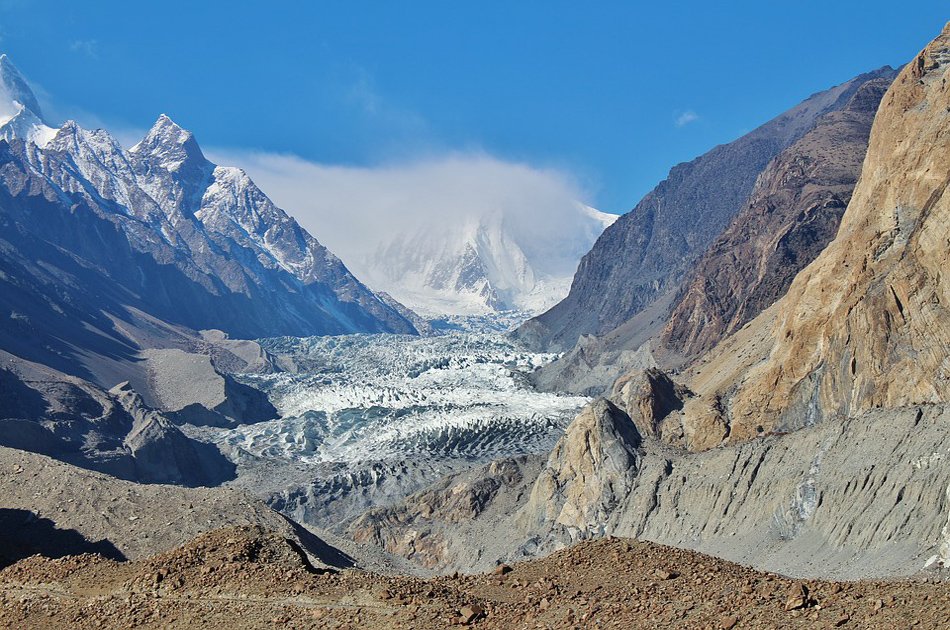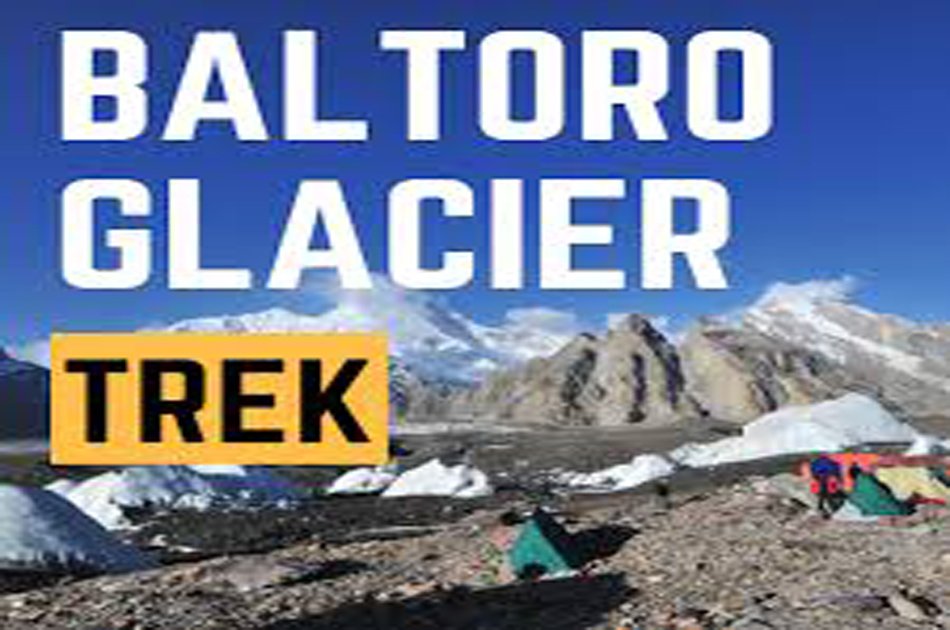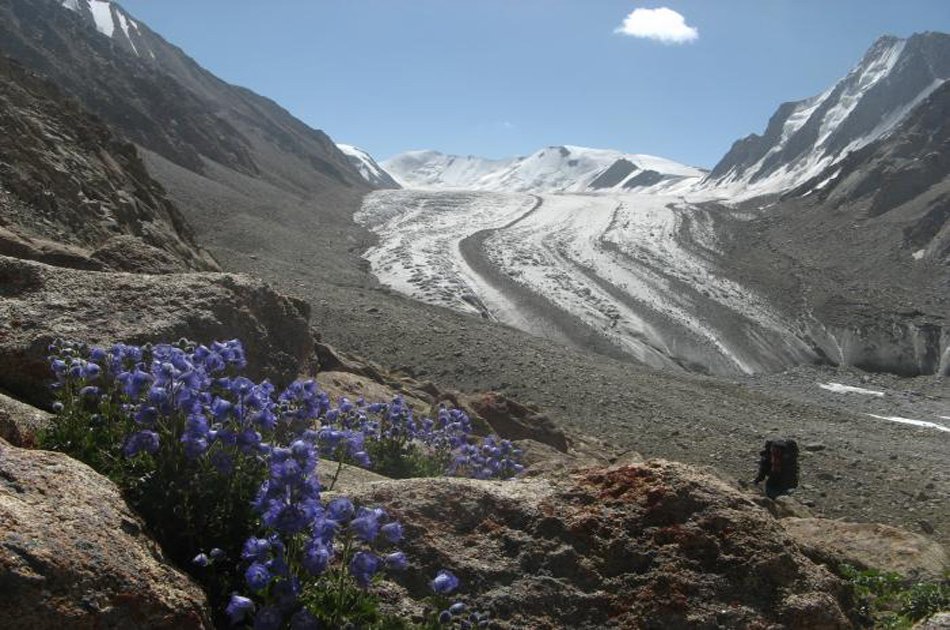16 Days Battura Glacier Trek Passu Gojal Hunza Pakistan Asia
This trip is a fascinating experience of an easy stroll along with a flower-strewn gully between the lateral moraine of Battura Glacier and the mountains. It provides breathtaking views of high Peaks like Ultar (7388), Shispare (7611m), Passu peak (7284m), Karun Koh (7164m), and others in the Shimshal region.
From Fatimahil you can have an unforgettable view of the formidable North face of Battura massif. After halfway between Kukhil and Guchsum is the wide plateau of Shelmin where the Urthum brook flows from the North. This is a much tougher route than Kilik or Mintaka but not a technical one. The scenery will simply sweep you off your feet.
- Accommodation hotel and luxury camp
- Journey through Karakoram High way
- Trek on Pass Glacier
- visit local pasture
 Scheduling: Semi-Private Tour
Scheduling: Semi-Private Tour
 Languages offered on the Activity / Tour: English, German, French, Chinese, Hindi, Urdu
Languages offered on the Activity / Tour: English, German, French, Chinese, Hindi, Urdu
 Duration: 16 days
Duration: 16 days
 Mobile Voucher Accepted
Mobile Voucher Accepted Printed Voucher Accepted
Printed Voucher Accepted Live GuideEnglish, German, French, Urdu
Live GuideEnglish, German, French, Urdu Pick-up servicePick up from Islamabad International Airport.
Pick-up servicePick up from Islamabad International Airport. Easy CancellationThere is no cancellation fee once Customers Cancel at least 10 day(s) prior to the date of the activity or tour.
Easy CancellationThere is no cancellation fee once Customers Cancel at least 10 day(s) prior to the date of the activity or tour.
There is 50% cancellation fee for Customers to Cancel 07 day(s) prior to the date of the activity or tour.
There is a 100% cancellation fee for Customers to Cancel 03 day(s) prior to the date of the activity or tour.
 Confirmation will be received at time of booking
Confirmation will be received at time of booking
-
 Cut-off Time Available to be booked until 15 before the tour starts. We reserve the option to confirm the tour or not due to availability.
Cut-off Time Available to be booked until 15 before the tour starts. We reserve the option to confirm the tour or not due to availability.
- Any expense due to forced measures, cancellation of flight, landslides.
- English speaking qualified Mountain Guide.
- Camping facilities as per itinerary. Two person high altitude dome tent with close cell mattress, mess tent with folding tables & stools, kitchen tent with complete kitchenette & staff , toilet tent.
- Transport: Air conditioned transport from Islamabad to trek head (Passu) and back.
- Meals: Full Board at hotels, full board during camping.
- Accommodation on twin sharing basis: at standard category hotels in towns, 2 person high altitude dome tents during camping.
- Porter from Passu to Passu
- Trekking NOC from AC Hunza
- Any expense of personal nature not mentioned above.
- Domestic/International airfare and airport taxes.
- Climbing Equipment an HP Porters if Required
- Climbing Pirmite to climb peak
- Travelling insurance
- Any expense due to forced measures, cancellation of flight, landslides, natural calamities, acts of God, forced majeurs: beyond the control of Rock Valley Tours Pvt Ltd, their staff and suppliers.
Arrive Islamabad. the federal capital of Pakistan. At the airport you will be met and assisted by the staff of Rock Valley Tours. Transfer to hotel. Afternoon city tour of the twin cities of Rawalpindi & Islamabad. Overnight hotel.
We start our journey from Islamabad along Karakoram Highway, through the lush green alpine landscape of Hazara we emerge on the bank of Indus river at Thakot.
From here we enter the narrow rocky gorge of Indus. The Highway was a joint venture between Pakistan and Chinese engineers and it took 20 years & 850 lives to complete this 8th wonder of the world. (500 km, 10/11 hours)
Drive to Passu Drive on Karakoram Highway to the charming village of Passu in the heart of Karakoram mountains.
We have fascinating views of soaring peaks all around us, including Nanga Parbat (8,125 M), Rakaposhi (7,788 M). Overnight Passu 2,500 meters at Lodge. (150, 4/5 hours)
We start our trek from the Passu village, after short walk along the road we fork west towards Batura glacier. Near the snout of the glacier, about an hour’s walk, we would be greeted by our companions for the trek YAKS. These champions of the glacier would be carrying our loads during the trek. (2/3 hours).
During the next hour we would be gradually gaining height, walking through barren rocky landscape. Arrive Yunzibin, our campsite at 2,800 m (3/4 hours). From the camp we have fascinating views of Passu Peak, Batura 1, Batura 2 Peaks.
It is possible to cross Batura glacier from our campsite, we continue straight keeping glacier on our right side and walk along the lateral moraine to Kirgas Washik campsite. This route is followed mostly By the villagers on way to upper pastures, so it is well marked and easier to walk on.
As we walk on the crest of lateral moraine of glacier, we have excellent views of Batura massif straight ahead and the peaks of Shimshal valley to our east. We pass a small lake and a couple of shepherds huts before we arrive at Eagle’s nest (meaning of Kirgas Washik) campsite for
As the glacier changes re-adjusts its crevasses each season, so the safe place to cross to the other side also changes. We take the option of crossing just beyond Kirgas Washik, involving about an hour. The crossing is made safe by the fact that the same route is used by the shepherds and goats throughout the year, so the route is clearly marked.
Yashpirt at 3,300 meters, is an ideal summer settlement set between rocky & grassy ridge on one side and low moraine of Batura glacier on the other side. From here we have the commanding view of massive Batura icefall just ahead of us.
Every household in Passu village keeps one house in this settlement, and just 30 years ago they use to farm Barley and wheat here during the summer months. Now it is the best-housed summer settlement. Camp. (6/7 hours)
We start our trek for Shilmin in soft morning light, walking all the way on the north side of Batura glacier. For the first part of the trek the view is dominated by the shimmering white ice of Batura Ice Fall just across the glacier. We would now mostly walk in the ablation valley of the glacier, and twice would have to cross the streams of cold water.
Lunch at Kukhil summer pasture, approached after crossing a wooden log bridge over the rushing stream. Later we would walk past juniper, willow and ash and alpine flowers by the stream. Shilmin at 3,460m lies at the opening of Wartum valley with a small crystal clear lake just next to our Camp. (6/7 hours)
We leave the Batura valley & enter Wartum valley heading north, and soon traverse loose scree area to emerge at small platform with many birch trees. From here we have commanding view down to Batura in South & Shireen Maidan (Sweet pasture) in East. We head North along Wartum Nallah (stream), gradually gaining height.
Just short of base camp we cross the Wartum stream and steeply climb to emerge at the wide open plateau: our base camp called Furzin at 4360 M. (6/7 hours)
We spend a free day for your acclimatization at the base camp. In the afternoon we could walk on a round hill in south to have a better view. back to camp.
We unfold our camp at Furzin and return to main Batura valley walking along the steep gorge of Wartum, Camp.
In the afternoon we may take a short walk up to Lupdor, the last pasture along Batura glacier, for commanding view of upper Batura, and its peaks rising to 7,000 meters. (5/6 hours)
Walking along the stream through the grassy ablation valley north of glacier, we arrive at the lovely campsite of Yashpirt. Camp. (5/6 hours)
We walk on the crest of lateral moraine all the way keeping the glacier to our south. Small lakes squeezed between the glacier and mountain offer exciting photo stops.
Cross the glacier near the Yunzbin, the crossing is fairly easy for the first 30 minutes but demands careful walking in the last half an hour as we encounter boulders. Arrive Yunz for Camp overnight. (5/6 hours)
An easy two hours downhill walk from Yunz to Passu. Alternately one could take the more demanding and rewarding route of Yunz Pass to Passu glacier. Evening free at Passu. Overnight hotel.
Explore Karimabad Short drive to Karimabad, the capital of Hunza. Here we have time to visit the Altit & Baltit forts and walk through its bazaar. stay Hunza OR Drive to Gilgit, while stopping on the route for views of high summits.
At Gilgit we may take excursion to the statue of Buddha just outside the town. Overnight hotel. (100 km, 3 hours)
We drive on KKH along the Indus river to Besham in Swat district. As we leave Gilgit in the morning we catch the exciting view of Nanga Parbat (8,12 5M) from the road. Arrive Besham on the bank of Indus, Overnight motel. (370 km, 8/9 hours)
At Rawalpindi we have time to hunt the colorful bazaars. Farewell dinner at a traditional restaurant, overnight at hotel. (In case of bad weather or any unexpected delay during expedition, this day could be used). OR Fly home Transfer to airport for international departure flight.
- We provide close-cell mattresses but you may want to supplement for additional comfort. Stuff sacks of various sizes for storing your used clothes. Toilet paper or travel pack of tissues. An interesting book. Notebook and pen for a journal. Snacks: personal choice of dried fruit, candy, energy bars. Binoculars. Camera, film, extra batteries, cleaning supplies and extra lenses. Sports gear (playing cards/Frisbee) Water purification tablets
- Sunglasses Towel Washcloth Bandanna/Scarf, for covering your mouth while riding in a jeep. Water bottle, with a durable screw top. Sunscreen Headlamp with flashlight + extra batteries and bulb Insect repellent Swiss Army knife or a similar Nylon cord for a clothesline Personal Medical Kit Pocket size sewing kit Lighter or matches for general use Wrist Watch
- Headgear Parka Wool shirt & trousers Sweater Cotton shirt & pants Gloves & Mittens Rain/wind suit Cotton & Wool undergarments Socks (Cotton & Wool/synthetic) Boots (Trek & Camp) Belt! Down Jacket Shalwar Kameez (Cotton) Spare laces for boots
- With your knowledge of Pakistani culture, you are well aware of precautions to be taken while travelling through remote areas. Cloths for the trek should be durable, comfortable and easy to wash and dry. In good weather, you will spend much of your time in a T-shirt or medium shirt and outdoor trousers. You will need warmer clothes for the evening in the camps. Temperature falls rapidly as soon the sun goes down. Men could wear shorts once we are through populated areas, that means from the third day of the trek. Women are advised to use cotton shalwar kameez (loose long shirts and baggy trousers) the traditional Pakistani dress, as these are comfortable during warm conditions, and also appreciated & respected by the locals.
- Wicking Long Underwear (tops & bottoms). Wick moisture to keep you warm and comfortable and dry quickly. Two suits are a good idea. Ski Hat - Covers your ears properly, use one with a cotton liner. Woollen cap is also good. Mittens or Gloves - Woolen gloves are useful when at higher elevations and during windy conditions when the temperature drops quickly. Brimmed Sun Hat - Very important for this trek, as when we start the trek and till we arrive at Concordia, we are generally walking towards east. This can be annoying in the morning as the sun is low and hits your eyes. Bathing Suit - Men can take bath by the rivers or occasional lakes in ablation valleys. Toiletries - Keep everything you normally use. Just remember to bring effective sunscreen, chapstick/lip balm, skin lotion and laundry soap.
- Crampons - You may need crampons on certain treks, sometimes only for one day. It helps in having a better grip on hard snow to have crampons fitted to your boots. Look for easy to fix ones. (Check with us for your specific trek if you need the crampons or not). From our regular trek list, you would need to bring crampons for: Gondogoro La, Biafo Hispar and Wartum Peak Thermal socks - The socks you wear are a critical element. A cotton/wool combination is useful while on the glacier, and for warmer conditions, cotton socks are best. For those who are sensitive to wool synthetic/cotton socks are recommended. Liner Socks - A thin, wickable material. Polypropylene, Capilene, Thermax and Drylete all work very well. Silk does not work nearly as effectively as any one of the above. Polyester Fleece/Pile Jacket or Pullover - Stays warm even when wet. Polyester Fleece Pants - Good for afternoon strolls, same as above. Rain gear - A rain suit available from the local market is best for rain, doubles as a windbreaker, and fits over pile jacket and pants.
- Sleeping Bag - As we shall be sleeping for four nights at Concordia at 4,700meters or at Snow Lake and Hispar Pass at 5151meters above sea level, so the bag should be rated for 0 degree F or -18 degree C. Ratings are all relative since the amount of insulation needed for a particular person to stay comfortable depends on their rate metabolism. A down bag will be warmer for its weight and pack smaller but does not retain its insulative properties when wet. A waterproof breathable shell or a bivy-bag will keep the bag dry. A synthetic bag keeps you warm even when wet and is a less expensive alternative, but will weigh more for a given amount of warmth. Trekking Boots - The single most important item on this list! Never take brand new boots on a trek, make sure they are well broken-in before departure. Good trekking boots are hard to get in Pakistan. If you are buying a new pair from abroad, look for medium-weight boots of fabric or a fabric/leather combination. They should provide adequate ankle support. A vibrum or other deep-lug will protect you from rocks and add support. Always use thick socks when trying shoes so that you get the correct size. Short shoes can jam your toes painfully during steep descents. You could also try to get new “Grouted” shoes that provide protection against water and are good while walking in rain or through the snow. Make sure you can fit crampons on your shoes, as it is vital for crossing different passes. Camp Shoes - Jogging shoes or sneakers to slip in at the end of the day. Tiva sandals are ideal for this trek, as you can use them while crossing streams and also at the campsite for strolls.
- Day Pack - Large enough for camera gear, cap, sunglasses, water bottle, jacket and other items you may like to use while on the trek. Extra carry-on - For storing city clothes in Skardu. Money Belt - A small fanny pack, money belt or around the neck passport bag is suggested for keeping safe your passport, travel documents and money. Packing list for your Duffel.
- While on an organized trek, it is best to pack all items for your trip in one large piece and one carry on. The large piece must be a duffel bag (weighing not more than 12.5 Kg.) because duffels are easier for porters to carry. A small daypack is suggested as a carry-on to keep items that you will use during while on the trek, bus or jeep. Luggage -Large duffel bag with a lock. It is not recommended to put your stuff in a backpack as the straps might get damaged while being transferred from bus to jeeps, jeeps to campsites and during loading and unloading by porters each day. A small padlock that fits through the zipper of your duffel bag is recommended.






 Product code: 4440
Product code: 4440  © Copyright 2024 Private Tour Inc. All Rights Reserved.
© Copyright 2024 Private Tour Inc. All Rights Reserved.